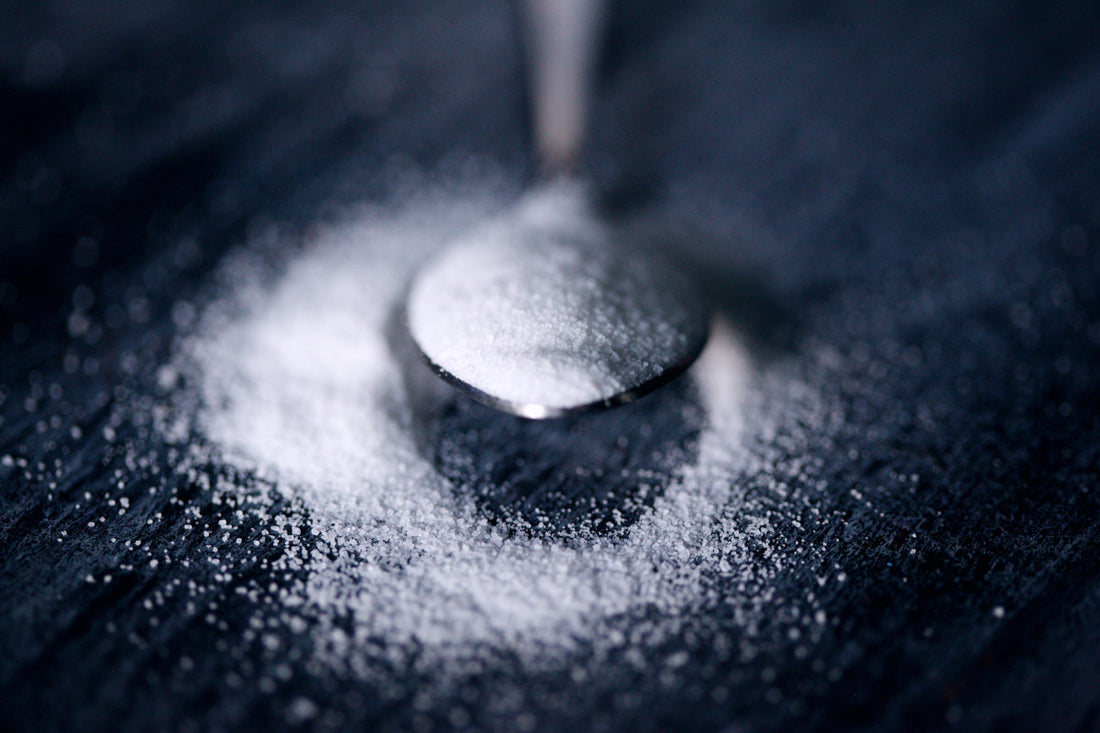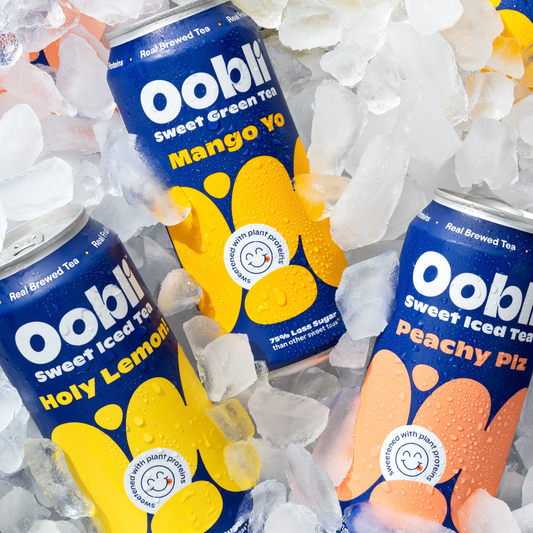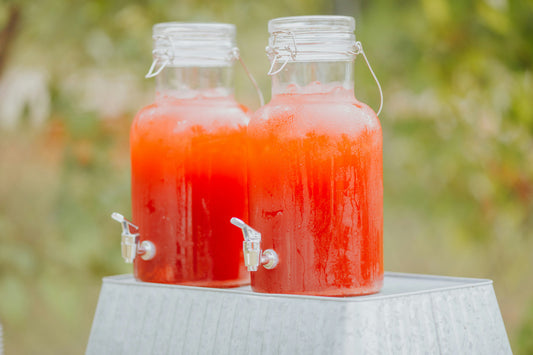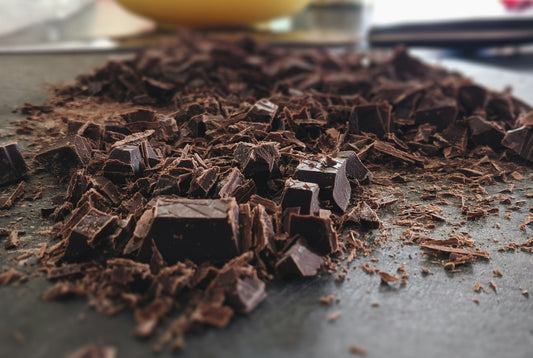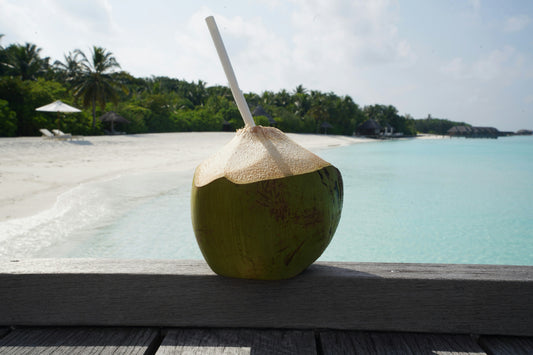In the modern quest for healthier alternatives to sugar, the words stevia, aspartame and sucralose (aka, Splenda) have become almost as common as coffee and tea.
They’re viewed as two different ways to accomplish similar goals: sweeten up our foods and drinks without the harmful effects of sugar. And as a result, they've quietly slipped into our soft drinks, baked goods, and even our morning cup of Joe.
But how much do we really know about these sugar substitutes that have managed to become a staple in our daily diets? Are they truly the better choice or just a lesser evil? And, what if there was a third option, a dark horse in the race that might just outrun these familiar contenders?
In this sweetener showdown, we’ll compare and contrast stevia, aspartame and sucralose to uncover which is safer, which tastes better, and ultimately, which you can count on (if either) to help you meet your health goals.
As we dive deeper into this debate, we’ll also introduce a superior sweetener that offers the best of both worlds: delicious, sweet taste with none of the guilt. Trust us - you aren’t going to want to miss out on this one.
Before we get into all that, let’s start by taking a quick look at what stevia, sucralose and aspartame are individually. This will help us compare and contrast them side-by-side later on.
What are Stevia, Sucralose and Aspartame? Key Differences Between These Sweeteners
Many look at stevia, aspartame and sucralose as one and the same. After all, they’re both sweeteners that can substitute traditional sugar, right?
Not exactly.
While they serve the same purpose, they are vastly different in how they’re made, what they taste like, and the implications that come from using them in your diet.
To provide some more context and set the stage for the rest of our conversation on sucralose vs aspartame, let’s take a journey behind the scenes of how they’re each brought to life.
How Stevia is Made
Stevia is a natural is a natural, zero-calorie sweetener that's grown massively in popularity and usage over the last decade. Stevia is derived from the leaves of the Stevia rebaudiana plant, and is about 200-400 times sweeter than sugar.
Stevia as a sweetener is made by extracting steviol glycosides from the leaves of the stevia plant. Then, they're purified to remove some of the bitter tasting compounds.
Stevia is a small-molecule sweetener, and though it generally has minimal impact on blood sugar (although some newer studies have challenged this notion), stevia does penetrate the gut microbiome and has the potential to change the composition of the gut bacteria.
How Aspartame is Made
Aspartame is a low-calorie artificial sweetener that's about 200 times sweeter than sugar. It's used in many sugar-free foods and beverages because it tastes sweet but doesn't lead to the same caloric intake as sugar. Still, it creates problems of its own. More on that later.
Aspartame is synthesized through a process that involves combining two amino acids — phenylalanine and aspartic acid — with a third component known as a methyl ester. The result is a white, crystalline substance that tastes remarkably sweet.
The human body metabolizes aspartame just like these constituent parts, which means it does provide a small amount of calories, unlike sucralose. However, because it's so much sweeter than sugar, only a tiny amount is needed to achieve the same level of sweetness, keeping the calorie count minimal
How Sucralose is Made
Sucralose, on the other hand, is a zero-calorie artificial sweetener that is a whopping 600 times sweeter than sugar. It's not fully absorbed by the body, meaning it doesn't provide any calories or raise blood sugar levels. Unlike aspartame, it also maintains its sweetness when heated, making it a popular choice for baking.
Sucralose starts its life as a sugar molecule. During the manufacturing process, three hydrogen-oxygen groups on the sugar molecule are replaced with chlorine atoms through a process known as selective chlorination.
This alteration makes sucralose much sweeter than sugar and non-metabolizable by the body, which means it passes through the body without being broken down for energy.
At first glance, sucralose and aspartame both look to solve similar problems - they help you add some sweetness without any of the harmful effects of sugar. But as you’ll discover below, the aspartame vs sucralose debate is actually a matter of choosing the lesser of two evils…
Stevia vs Aspartame vs Sucralose: Which is Safer and Which Tastes Better?
The main difference between stevia, sucralose and aspartame comes down to this: taste and the impact to your health.
The good news? In a moment, we’ll introduce you to a third option that doesn’t force you to compromise. First, let’s take a look at the stevia vs aspartame vs sucralose debate through 5 key factors.
Caloric Content
Generally, stevia is calorie free and about 200-400 times sweeter than sugar, and it's not metabolized by the body or absorbed upper intestinal tract.
Aspartame does contain calories — about 4 per gram, the same as sugar. However, because it's about 200 times sweeter than sugar, the quantity used is so minute that the calories it contributes are negligible.
On the other hand, sucralose has zero calories, as it's not metabolized by the body. So in terms of supporting your weight loss goals, it appears stevia and sucralose have the edge. But, caloric content doesn’t paint the full picture.
There are some studies that show a link between both stevia, sucralose and weight gain. Moreover, there is a risk of sucralose contributing to type 2 diabetes, hypertension, and cardiovascular conditions.
So while you’ll feel good posting fewer calories in your diet tracking app, you’re not really putting your health at the forefront. The truth is, no evidence supports using artificial sweeteners like stevia, aspartame or sucralose in weight management regimens.
Let’s expand this conversation by looking at how these impact your blood sugar levels…
Impact on Blood Sugar Levels
Stevia, aspartame and sucralose have a negligible effect on blood sugar levels (though again, this is being challenged by newer studies). They can be a suitable choice for those managing diabetes or watching their blood sugar, as each solves the challenges associated with natural sugar.
With that said, some studies suggest that regular consumption of non-nutritive sweeteners might affect the body's ability to regulate blood sugar, though this is still a topic of ongoing research.
Other Health Considerations
This is one of the key takeaways we want you to leave this discussion with. There have been concerns about potential health risks with stevia, aspartame and sucralose.
Some studies have suggested a possible link between aspartame and headaches or migraines, and there have been ongoing debates about its safety regarding neurological health. Moreover, there are rumblings that a link exists between certain types of cancer (lymphoma, leukemia, and more) and aspartame.
Sucralose, meanwhile, has come under scrutiny because of its chlorine content. This could potentially affect gut health or metabolic processes. Other reasons to avoid sucralose include the fact that it kills probiotics, could cause IBS or Crohn’s Disease, may generate toxic/carcinogenic compounds when heated,
The Taste Test
When looking at stevia, aspartame and sucralose, many individuals base their decision on which can better replicate the taste of sugar. And as you can imagine, you’ll find conflicting answers to this.
That’s because taste is subjective. Some people find that stevia has an overly sweet taste with a linger. Aspartame has a slightly bitter aftertaste, while others don't notice it. Sucralose, on the other hand, has a more sugar-like taste to most palates and lacks the bitter aftertaste, but may have a slightly chemical flavor to some.
Neither one of these is going to satisfy your cravings for sugar — you’ll end up underwhelmed, disappointed, and at risk of falling off the dietary wagon so to speak.
So, Which is Better: Stevia, Sucralose or Aspartame?
From a purely objective standpoint, there's no definitive winner. They each have their pros and cons when it comes to taste, safety, and nutritional impact.
It’s generally agreed upon that stevia and aspartame won’t impact your blood sugar levels, but new research is challenging this notion. And they may potentially contributing to headaches/migraines, neurological concerns, and leaving much to be desired in terms of taste.
Sucralose, on the other hand, has zero calories and more closely resembles the taste of sugar that you’ve come to know and love. However, some studies link it to a negative impact on gut and digestive health, and the aftertaste can be a bit chemical-laden.
In the end, we feel that there is no winner in the stevia, sucralose and aspartame debate — only losers. While these small-molecule sweeteners might seem like a solution to the problems posed by sugar, they're not without their issues. The potential health concerns and the fact that they're artificial make them a less-than-perfect choice for many people. And newer research is making this even more clear.
But what if there was a natural, delicious, and healthy alternative to sugar, stevia aspartame, and sucralose alike? There is — and you’re just a few clicks away from getting your hands on it.
Introducing a Natural Sweetener That Blows Stevia, Aspartame and Sucralose Out of the Water…
At a certain point, you have to wonder if the artificial sweeteners you’re using are actually worse for you than good old sugar — which isn’t without its own problems. Fortunately, you don’t have to choose between the lesser evil.
A natural sweetener exists that delivers a sweetness that rivals — and to some, even surpasses — that of sugar itself. And, you can enjoy it with none of the health risks or drawbacks associated with artificial sweeteners. Or, any of the guilt associated with traditional sugar.
It’s time we introduced you to sweet proteins.
What Are Sweet Proteins?
Sweet proteins are unique compounds found naturally in certain fruits, like the West African Oubli fruit. These proteins are incredibly potent - some are up to 5,000 times sweeter than sugar - yet they contain no calories and have no impact on your blood sugar levels.
They don't have the bitter aftertaste of artificial sweeteners, and they don't carry the same health concerns either. On the contrary - they have antioxidant, anti-inflammatory, and anti-allergy properties!
To sweeten the deal even further (pun intended) these proteins have no negative impact on the environment - a stark contrast to cane sugar, which takes a serious toll on our planet.
But how does this magic work, you might wonder? Well, these proteins activate your taste receptors, fooling your brain into perceiving a sweet taste. It's all the sweetness you love, with none of the guilt.
And at Oobli, we’ve made it accessible for you amazing craft-brewed sweet iced teas and in a delicious, guilt-free chocolate bar…
Harness the Power of Sweet Protein at Oobli!
At Oobli, we've harnessed the power of sweet proteins to create guilt-free, delicious treats. By using precision fermentation, we're able to produce these sweet proteins sustainably, without relying on extensive land or water resources.
Say goodbye to the compromise between your sweet tooth and your health. With Oobli, you can indulge your taste buds without a second thought. Imagine savoring the rich, velvety smoothness of a chocolate bar without worrying about calories or blood sugar spikes.
That's not a dream anymore - it's a sweet, sweet reality with Oobli. So why settle for artificial sweeteners with potential downsides when you can go natural with sweet proteins? The choice is clear, and the choice is sweet — Oobli sweet.
Parting Thoughts on the Difference Between Stevia, Aspartame and Sucralose
While you came here hoping to discover the key differences between stevia, sucralose vs aspartame, you’re now well aware of the potentially harmful consequences associated with both of these sweeteners.
On the surface, it appears as if these can replace sugar to help you enjoy your favorite foods & drinks while living a healthier lifestyle. In reality, though, these synthetic sweeteners contribute to a myriad of side effects and risks on their own.
And in considering the fact that they don’t really replicate the delicious, sweet taste of sugar, why bother? After all, a delicious, guilt-free alternative awaits you - and it’s right here at Oobli ready for you. Taste the difference yourself and jumpstart your journey to healthier, happier living at Oobli!
